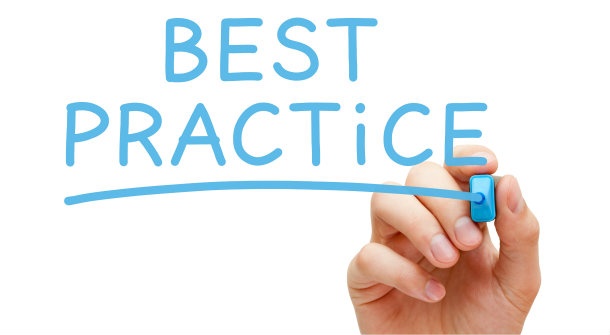sales best practices
-
New Data Reveals Interesting Differences in Salespeople’s Ability to Work From Home
- June 25, 2020
- Posted by: Dave Kurlan
- Category: Understanding the Sales Force

John Pattison, COO of Objective Management Group (OMG), dug into OMG’s remote seller data, and learned that similar to the weather, things aren’t always what they appear to be. The table below shows how this data changes according to sales experience.
-
I’m Sorry But Your Sales Process Sucks
- February 1, 2019
- Posted by: Dave Kurlan
- Category: Understanding the Sales Force

Perhaps you saw this too. Yesterday, a post appeared in my LinkedIn feed that talked about the power of sales process. The article was clearly written to support the author’s technology application, which helps track sales KPI’s; so they should know a little about the topic of sales process.
Towards the end of the article, they provided a sample of what an effective sales process should look like. The following text is exactly what they wrote:
-
Top 13 Requirements to Help You Soar as a Sales Manager
- January 17, 2019
- Posted by: Dave Kurlan
- Category: Understanding the Sales Force

In my last article I shared the top 8 requirements for becoming a great salesperson. Wow, did that resonate with people and there was a great discussion about it on LinkedIn. In addition to that, I received a number of emails asking, what are the requirements for becoming a great sales manager?
I’ll share those in a moment but first, since they were so popular, a few more “do you remember the first time” questions:
-
The Perfect Day for a Salesperson – 10 Ways to be More Efficient and Effective in 2018
- December 8, 2017
- Posted by: Dave Kurlan
- Category: Understanding the Sales Force

You can be more effective and more efficient selling in 2018, do every single thing I wrote about in this article, exactly as I wrote it, and without any difficulty, by making a conscious decision to follow this blueprint. It’s not hard. It’s not scary. It’s not unusual. It’s not even thought-provoking. It’s simply a list of best practices that great salespeople (top 5%) do and that crappy (46%) salespeople either don’t do consistently or don’t do it at all.
-
Dissecting the #1 Sales Best Practice
- August 26, 2016
- Posted by: Dave Kurlan
- Category: Understanding the Sales Force

One company is attempting to create a compilation of best sales practices by sending out a weekly survey to sales leaders and asking them to choose from multiple choice questions what they most often do and teach. The topic changes each week. This is silly because (1) it just isn’t that simple, (2) it’s different for each selling role, each vertical, the decision makers they call on, their price points, the length of their sales cycle, and their respective competition, just to name a few. In addition, when you ask multiple choice questions like this, the answers will be so varied that there won’t be even a few, never mind a single best practice. Here is an example of what they asked this week:
-
Getting Emotional at Dunkin Donuts, and Over Social Selling
- August 18, 2014
- Posted by: Dave Kurlan
- Category: Understanding the Sales Force
My sudden inability to comprehend what was taking place is what happens when your mind is elsewhere. It happens to salespeople when they aren’t able to stay in the moment, maintain complete focus on what their prospects are saying, and respond without thinking several moves ahead or, more typically, about what they want to say. It’s a form of being emotional.
-
Which Industries Need the Most Help to Get Sales to the Next Level?
- August 15, 2013
- Posted by: Kurlan & Associates, Inc.
- Category: Understanding the Sales Force
-
Must Read – Accenture / CSO Insights Sales Optimization Study
- December 2, 2011
- Posted by: Dave Kurlan
- Category: Understanding the Sales Force
In their latest study (thanks to Charlie for sending it to me) – Accenture reported on the 2000 companies worldwide that CSO Insights surveyed. I identified some very interesting findings and if there was a big surprise it was that nothing surprised me! In fact, it supports everything I’ve written about here for the past 5 years. Consider the following:
-
If Andre Agassi was in Sales, Would He be Ranked #1?
- September 6, 2011
- Posted by: Dave Kurlan
- Category: Understanding the Sales Force
We know Andre Agassi wouldn’t earn $40 million a year at selling, and he may not have been able to meet, never mind date his two superstar wives (Brooke Shields and Steffi Graf). But would he make a good salesperson?

